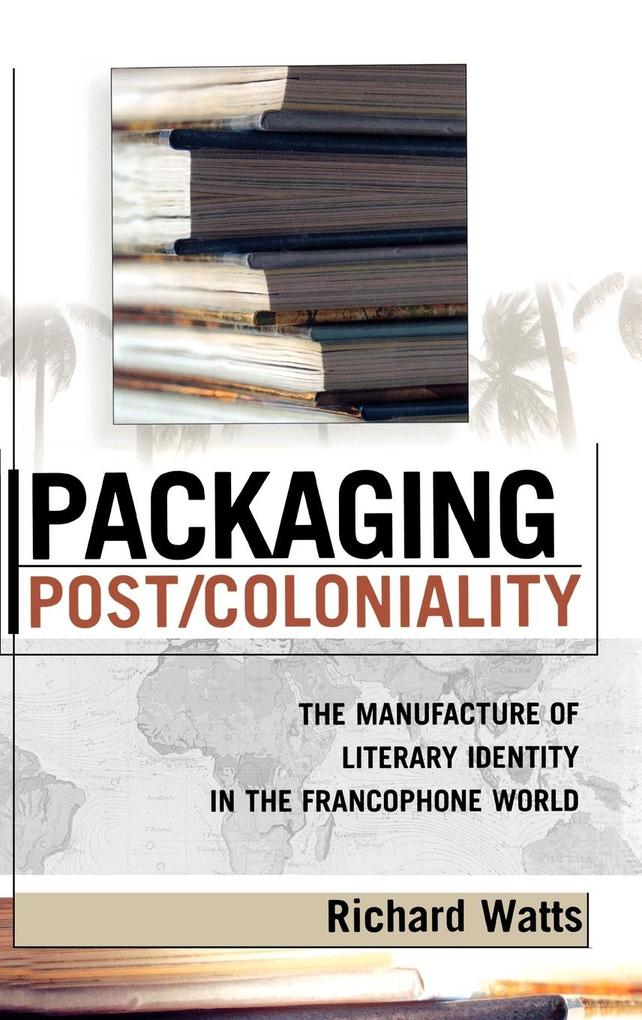
Zustellung: Mo, 25.08. - Do, 28.08.
Versand in 7 Tagen
VersandkostenfreiBestellen & in Filiale abholen:
Packaging Post/Coloniality reads the marketing matter surrounding works of Francophone literature as an important though overlooked source in the cultural history of colonialism and the articulation of new identities in France and the Francophone world.
Inhaltsverzeichnis
Chapter 1 Introduction: Paratexts and the Mediation of Culture Part 2 The Colonial Paratext and Its Imperial Desires Chapter 3 Black Text, White Masks: The Colonial Paratext in Sub-Saharan Africa Chapter 4 "The Felicitous Graft:" Hybridity and Anxiety in Indochina and North Africa Part 5 The Textual Histories of Decolonization Chapter 6 Senghor and Sartre between the Colonial and the Postcolonial Chapter 7 Aimé Cé saire's Cahier d'un retour au pays natal and Its Displacements Part 8 Postcolonial Transfigurations of the Books Chapter 9 Glissant, Lopes, and the Ambivalence of the Postcolonial Paratext Chapter 10 Gender and the Paratext Chapter 11 Reading and Teaching Francophone Literatures in Translation
Mehr aus dieser Reihe
Produktdetails
Erscheinungsdatum
14. April 2005
Sprache
englisch
Untertitel
The Manufacture of Literary Identity in the Francophone World.
Sprache: Englisch.
Seitenanzahl
202
Reihe
After the Empire: The Francophone World and Postcolonial France, 116
Autor/Autorin
Richard Watts
Verlag/Hersteller
Produktart
gebunden
Gewicht
473 g
Größe (L/B/H)
240/161/16 mm
ISBN
9780739108550
Entdecken Sie mehr
Pressestimmen
A further addition to Lexington's increasingly impressive 'After the Empire' series... Watts challenges monolithic misrepresentations of the French Empire (and its discursive manifestations), exploring instead the historical (dis)continuities evident in an inclusively francophone postcoloniality... By illustrating the ways in which the foreignness of francophone literature has been mediated for its various audiences, he offers a highly original study of that literature's complex genealogy. Research In African Literatures The advent of reception theory has drawn attention to the conventions that govern the production of the literary text, the protocols which enable us to recognize such a text and facilitate access to it. Richard Watt provides in this book an illuminating discussion of these paratextual aspects of literature, which loom large in francophone literature, pointing us to the way in which the role of individuals such as Jean-Paul Sartre and Leopold Sedar Senghor has been determinant in the genesis and evolution of this literature. -- F. Abiola Irele, Harvard University In this original and insightful examination of Francophone texts, Watts shows how this literature was essentially recontextualized by particular prefaces. This theorizing of the ideological use of the paratext to create new possibilities for interpretation and readership provides as much an insight into French cultural politics as an understanding of how Francophone literature came to be read. -- J. Michael Dash, New York University Sometimes books need to be judged by their covers-wisely and with keen insight, as Richard Watts does in this original and dynamic study of the Francophone paratext. Cutting across the usual paths of criticism, digging deep into the colonial archive, Watts heightens our sensitivity to a whole range of marginal gestures whose importance turns out to be central. A surprising and rewarding book. -- Christopher L. Miller, Yale University
Bewertungen
0 Bewertungen
Es wurden noch keine Bewertungen abgegeben. Schreiben Sie die erste Bewertung zu "Packaging Post/Coloniality" und helfen Sie damit anderen bei der Kaufentscheidung.




























